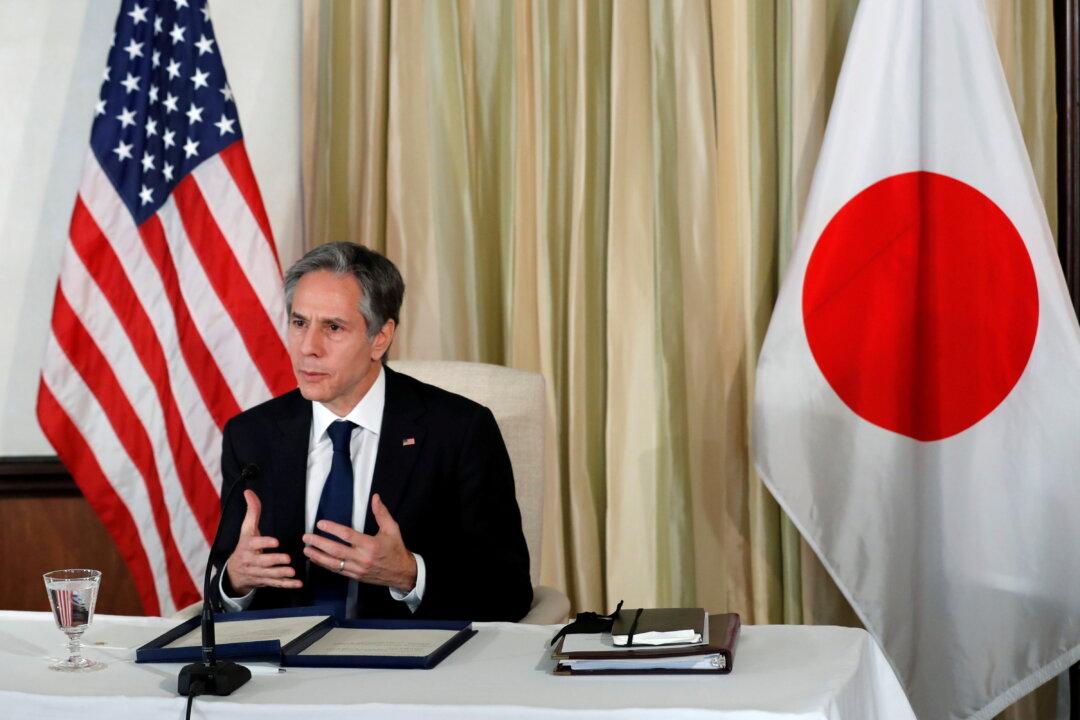The United States and Japan vowed on Friday to bolster cooperation in promoting economic security and building supply chain resilience in response to challenges posed by China and the Russia-Ukraine war.
Top officials from both countries met in Washington for the inaugural “two-plus-two” talks, during which they unveiled a plan to launch a new joint research center for next-generation semiconductors.





